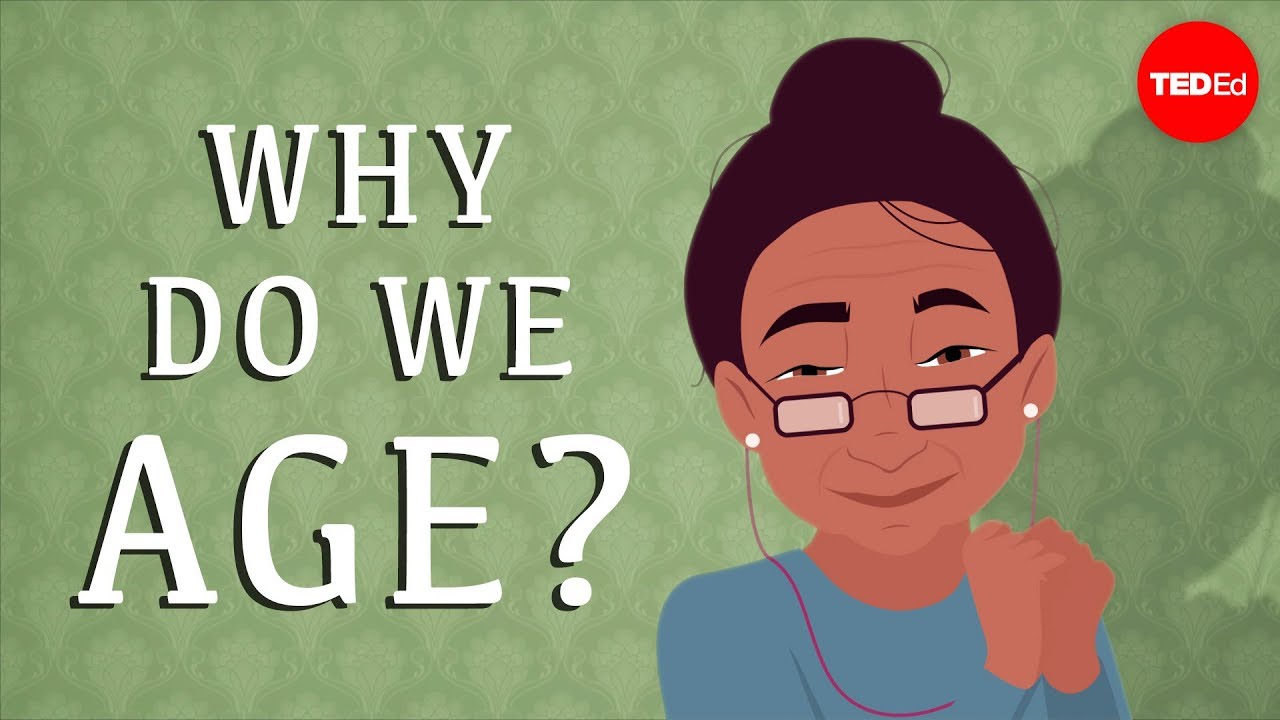
Why do we age?

Understanding the Biological Mechanisms of Aging
Aging is a complex biological process that involves a gradual decline in cellular function and an increase in vulnerability to diseases. At the core of aging are several key biological mechanisms that contribute to the deterioration of tissues and organs over time. Understanding these mechanisms not only sheds light on the aging process itself but also opens avenues for potential interventions that may enhance longevity and improve quality of life.
Cellular Senescence
One of the primary mechanisms of aging is cellular senescence, a state in which cells lose their ability to divide and function effectively. Senescent cells accumulate in various tissues as we age, leading to inflammation and the degradation of surrounding cells. This process is often triggered by factors such as DNA damage, oxidative stress, and telomere shortening. The presence of these dysfunctional cells can disrupt normal tissue homeostasis and contribute to age-related diseases, such as cancer and cardiovascular conditions.
Oxidative Stress
Another critical factor in the aging process is oxidative stress, which occurs when there is an imbalance between the production of reactive oxygen species (ROS) and the body’s ability to detoxify them. ROS are byproducts of normal metabolic processes and can cause significant damage to cellular components, including lipids, proteins, and DNA. Over time, the accumulation of oxidative damage can impair cellular function and lead to the onset of age-related disorders. Antioxidants, which help neutralize these harmful compounds, play a vital role in mitigating oxidative stress and promoting healthier aging.
Inflammation and the Immune System
Chronic low-grade inflammation, often referred to as inflammaging, is another key mechanism associated with aging. As the immune system becomes less efficient with age, it can lead to persistent inflammatory responses that contribute to tissue damage and age-related diseases. This state of heightened inflammation is thought to stem from various factors, including the accumulation of senescent cells, microbial infections, and the decline in the immune system's ability to respond effectively to pathogens. Understanding the relationship between inflammation and aging is crucial for developing strategies to promote a healthier immune response in older adults.
By exploring these biological mechanisms of aging, researchers are gaining valuable insights into how we can potentially slow down the aging process and enhance overall health in later life. Advances in biotechnology and medicine may lead to innovative therapies that target these mechanisms, offering hope for improved longevity and quality of life as we age.
The Role of Genetics in the Aging Process
The aging process is a complex interplay of various factors, and genetics plays a crucial role in determining how we age. Research has shown that our genetic makeup influences not only the physical appearance of aging but also our susceptibility to age-related diseases. Genes dictate how our cells repair themselves, manage oxidative stress, and maintain cellular function over time. Understanding the genetic factors involved in aging can provide insights into longevity and healthy aging.
Key Genetic Factors Influencing Aging:
- Telomeres: These protective caps at the ends of chromosomes shorten with each cell division, and their length is largely determined by genetics. Shorter telomeres are associated with age-related diseases and shorter lifespans.
- DNA Repair Mechanisms: Genetic variations affect the efficiency of DNA repair systems, which can lead to the accumulation of mutations over time, contributing to aging and age-related conditions.
- Inflammatory Responses: Certain genetic profiles predispose individuals to chronic inflammation, a key factor in many age-related diseases.
- Longevity Genes: Research has identified specific genes, such as the FOXO and SIRT families, that are linked to increased lifespan and improved health during aging.
Moreover, twin studies have provided compelling evidence for the hereditary nature of aging. Identical twins tend to age more similarly than fraternal twins, suggesting that genetic factors significantly influence the aging process. While environmental factors, such as lifestyle and diet, also play a role, the underlying genetic predisposition can set the stage for how these external influences manifest over time.
Recent advancements in genomic research have enabled scientists to explore the aging process at a molecular level. By identifying specific genes and their functions, researchers aim to develop targeted therapies that could potentially slow down aging or mitigate age-related diseases. This growing field of study highlights the importance of genetics in understanding aging and opens up new avenues for interventions that could enhance the quality of life as we age.
How Lifestyle Choices Influence Aging
The choices we make daily have a profound impact on how we age, both physically and mentally. Healthy lifestyle choices can slow the aging process, enhance longevity, and improve overall quality of life. Conversely, poor lifestyle habits can accelerate aging, leading to a range of health issues. Understanding the connection between lifestyle choices and aging is essential for anyone looking to maintain their vitality as they grow older.
Nutrition plays a crucial role in the aging process. A balanced diet rich in fruits, vegetables, whole grains, and lean proteins provides the body with essential nutrients that support cellular repair and regeneration. On the other hand, diets high in processed foods, sugars, and unhealthy fats can contribute to inflammation and oxidative stress, both of which are linked to premature aging. Incorporating antioxidant-rich foods, such as berries and leafy greens, can help combat these effects and promote a healthier aging process.
Physical activity is another key factor influencing how we age. Regular exercise not only helps maintain a healthy weight but also strengthens muscles and bones, improves cardiovascular health, and enhances mental well-being. Studies have shown that engaging in moderate-intensity exercise for at least 150 minutes a week can significantly reduce the risk of age-related diseases and improve cognitive function. Activities like walking, swimming, and strength training can be beneficial in promoting a longer, healthier life.
Additionally, stress management and mental health are critical components of healthy aging. Chronic stress can lead to various health problems, including high blood pressure, heart disease, and cognitive decline. Practicing mindfulness, meditation, or engaging in hobbies can help reduce stress levels and improve emotional resilience. Prioritizing social connections and fostering relationships also play a vital role in mental health, contributing to a more fulfilling and active lifestyle as one ages. By making conscious lifestyle choices, individuals can positively influence their aging process and enhance their overall well-being.
The Impact of Environmental Factors on Aging
Environmental factors play a significant role in the aging process, influencing both physical and cognitive health. Exposure to various elements in our surroundings, such as pollution, climate, and lifestyle choices, can accelerate the aging of our cells and overall bodily functions. Understanding these factors is essential for developing strategies to mitigate their effects and promote healthier aging.
Pollution and Aging
One of the most critical environmental factors affecting aging is air pollution. Studies have shown that prolonged exposure to pollutants like particulate matter and heavy metals can lead to oxidative stress, which damages cells and tissues. This oxidative damage is closely linked to age-related diseases such as cardiovascular conditions and neurodegenerative disorders. Additionally, urban areas with high pollution levels often experience a higher incidence of respiratory issues, further complicating the aging process.
Climate and Aging
Climate also plays a pivotal role in how we age. Extreme temperatures, whether hot or cold, can have detrimental effects on the body. For instance, prolonged heat exposure can lead to dehydration and heat-related illnesses, while cold environments can exacerbate conditions like arthritis. Moreover, climate change contributes to the increased frequency of natural disasters, which can lead to stress and trauma, both of which are known to negatively impact mental health and accelerate the aging process.
Lifestyle Choices and Aging
Beyond pollution and climate, lifestyle choices significantly influence how environmental factors impact aging. Factors such as diet, exercise, and social interactions are essential for maintaining health as we age. A balanced diet rich in antioxidants can help combat oxidative stress caused by environmental toxins, while regular physical activity promotes cardiovascular health and cognitive function. Furthermore, social connections can provide emotional support, reducing stress and its associated effects on aging. By understanding and addressing these environmental influences, individuals can take proactive steps to enhance their longevity and quality of life.
Common Myths About Aging: What Science Says
As we age, numerous myths and misconceptions can cloud our understanding of the aging process. These myths can lead to unnecessary fears and misconceptions about what it means to grow older. Let’s debunk some of the most prevalent myths about aging, backed by scientific research.
Myth 1: Aging Means Decline in Health
Many people believe that aging is synonymous with a decline in health and vitality. However, studies show that while some health issues become more common with age, many older adults lead active, fulfilling lives. In fact, research indicates that lifestyle choices, such as diet and exercise, play a significant role in maintaining health. The concept of "successful aging" emphasizes that with proper care, individuals can remain healthy well into their later years.
Myth 2: Memory Loss is Inevitable
Another common myth is that memory loss is an unavoidable part of aging. While cognitive decline can occur, it is not universal. According to scientific studies, many older adults retain their cognitive abilities well into old age. Engaging in mentally stimulating activities, maintaining social connections, and managing chronic conditions can significantly mitigate memory loss.
Myth 3: Older Adults Are Not Tech-Savvy
The stereotype that older adults struggle with technology is prevalent, but it is increasingly being proven wrong. Research shows that many seniors are embracing technology, using smartphones, social media, and online resources to enhance their lives. In fact, technology can serve as a vital tool for staying connected and informed, proving that age does not dictate one's ability to learn and adapt.
By understanding and dispelling these common myths about aging, we can foster a more accurate perception of what it means to grow older, allowing individuals to embrace their age with confidence and optimism.
Future Research and Innovations in Anti-Aging
The field of anti-aging research is rapidly evolving, with scientists exploring groundbreaking approaches to extend human lifespan and enhance the quality of life as we age. Current studies focus on understanding the biological mechanisms of aging, paving the way for innovative therapies and interventions. Among the most promising avenues of research are:
- Gene Therapy: Advances in gene editing technologies, such as CRISPR, hold the potential to repair or replace damaged genes associated with aging.
- Senolytics: These are drugs designed to selectively eliminate senescent cells, which accumulate with age and contribute to age-related diseases.
- Stem Cell Therapy: Utilizing stem cells to regenerate damaged tissues and organs is a focus area that may revolutionize age-related healthcare.
- Telomere Extension: Research is being conducted on methods to lengthen telomeres, which shorten as cells divide, playing a significant role in cellular aging.
In addition to these medical advancements, innovations in technology are also shaping the future of anti-aging research. Wearable devices that monitor health metrics in real-time are providing researchers with invaluable data to understand aging patterns better. Artificial intelligence (AI) is being employed to analyze vast amounts of biological data, helping to identify new anti-aging compounds and predict their efficacy. This synergy between technology and biology is expected to accelerate the discovery of effective anti-aging treatments.
Furthermore, the role of lifestyle interventions is gaining attention, with studies focusing on the impact of diet, exercise, and mental well-being on the aging process. Nutraceuticals, which combine nutrition and pharmaceuticals, are being explored for their potential to slow aging at the cellular level. These holistic approaches, combined with cutting-edge scientific research, are likely to yield comprehensive strategies for promoting longevity and enhancing life quality in the future.
Did you find this article helpful? Why do we age? See more here General.
Leave a Reply






Related posts